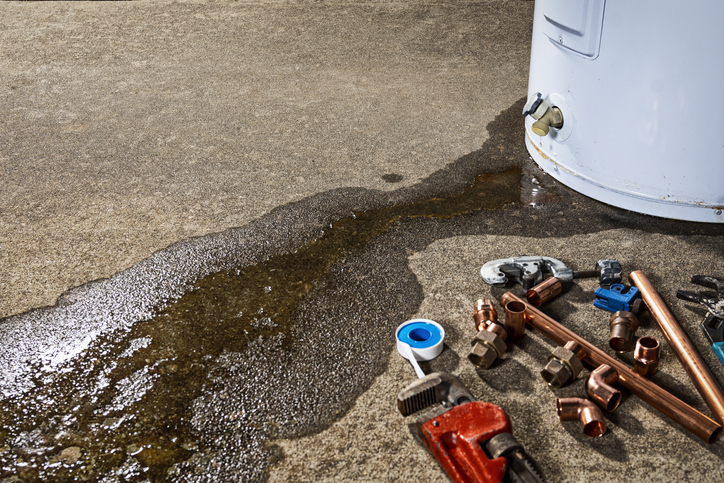
You may be wondering when to expect your water heater to go out. Having an idea of when your water heater’s lifespan may be up will help you determine when to replace your water heater system to prevent leaks and damage to your home.
Various factors affect the longevity of your water heater, including the type of water that is running through it, how often you’ve maintained the water heater, and whether you have had it flushed and drained every year.
A residential water heater will typically last about 6 to 13 years. At 12 years, it should be about time to replace your water heater before it goes out.
Typically, you will know your water heater needs to be replaced when you turn on the hot water but do not receive hot water. Other signs are dripping or puddling near the hot water tank or noises such as popping or gurgling sounds coming from the tank, caused by hard water sediment buildup.
-If you notice these signs, it’s time to look for a replacement model as soon as possible. This will save you from rushing to find a replacement in a pinch after the hot water tank has leaked and caused damage to your home. Other warning signs that your hot water tank is on its last leg include:
You may notice that your water will be very hot and then the next second it will be cold. Other times, it’s at the perfect temperature. These temperature variations signify a much bigger issue with your water heater.
If you are experiencing these temperature variations, check your water heater thermostat, you will want to make sure that it is set to your desired temperature. If the water is too hot, you can adjust to a cooler setting. We recommend using tape or a marker to mark your current setting to see if the temperature is changing on its own.
If you’ve made adjustments but are still having consistent temperature issues, you may need to replace the heating element or the thermostat. Unit size can also cause temperature issues. If your unit is too small, you can either spread out your water use or upgrade to a larger tank.
If you’ve been noticing that you barely have enough hot water for a shower each day or you want the dishes and are stuck with a cold shower, this means that your hot water heater isn’t producing enough hot water for your home.
In some cases, this can be fixed by adjusting your temperature dial on the water heater. Turn it to a higher degree and then wat about 30 minutes. Check the water temperature at your faucet after the 30 minute waiting period. You also want to make sure the circuit breaker switch is on since the breaker could have tripped and caused the thermostat to remain at a certain temperature.
If your water heater is tripping the circuit breaker, you will need to contact a professional to check for faulty wiring or electrical connections.
Water dripping from the hot water heater or water pooling around the unit is a sure sign that you need to take immediate action. Leaks mean that there has been an internal failure.
If you plan to troubleshoot this issue, you need to first disconnect the electricity or shut off the gas that runs to the unit. Allow the water heater unit to cool down, and then you can begin inspecting for a leak.
We recommend that you first check:
Check to make sure that these have not come loose. Tighten them if needed. Move on to check the bottom of the unit for leaks. While condensation is normal, excessive leaking means that you will likely need to replace your entire water heater unit.
If your water flow is not as strong as before, it could mean that there is a buildup of sediment or scale from hard water in your plumbing or your water heater. This is not an issue that can be handled down the road but one that requires immediate attention.
To resolve this issue, you can contact 412 Plumbing to have your tank drained and flushed to remove the sediment and to have your pipes inspected and any drainage issues fixed.
Additionally, we can descale your water heater and clean the inlet and outlet pipes.
You can avoid these common issues with your water heater by having regular maintenance performed. The expert technicians at 412 Plumbing have the tools and the knowledge to help keep your water heater in excellent condition! Contact us today to learn more!
Highly recommend 412 Plumbing. Our hot water tank wasn’t working and they were able to send someone out that same day and fixed it in no time! Will definitely be using their services in the future. Very friendly and explained what happened in detail so we can fix the issue ourselves in the future if it were to happen again!
I can’t say enough good things about this company. The water in my tub would not shut off. Brett was here within an hour. Very nice young man. Excellent job and reasonable price. Will definitely use him again.


